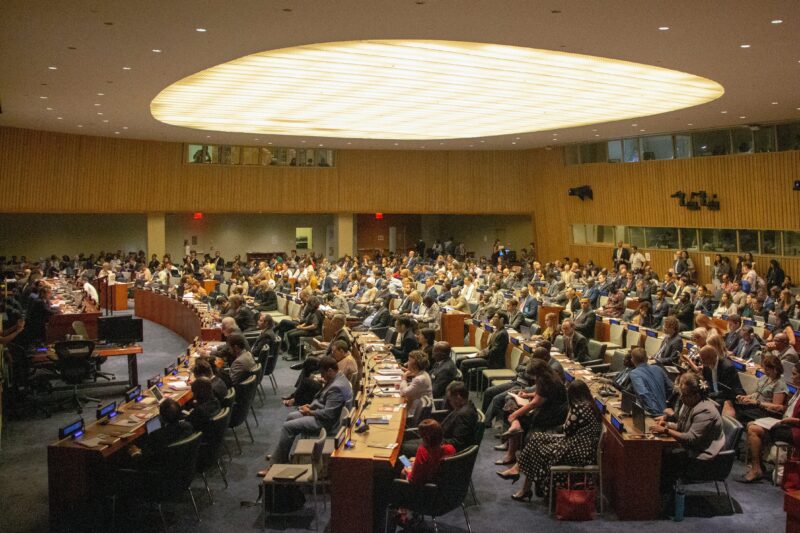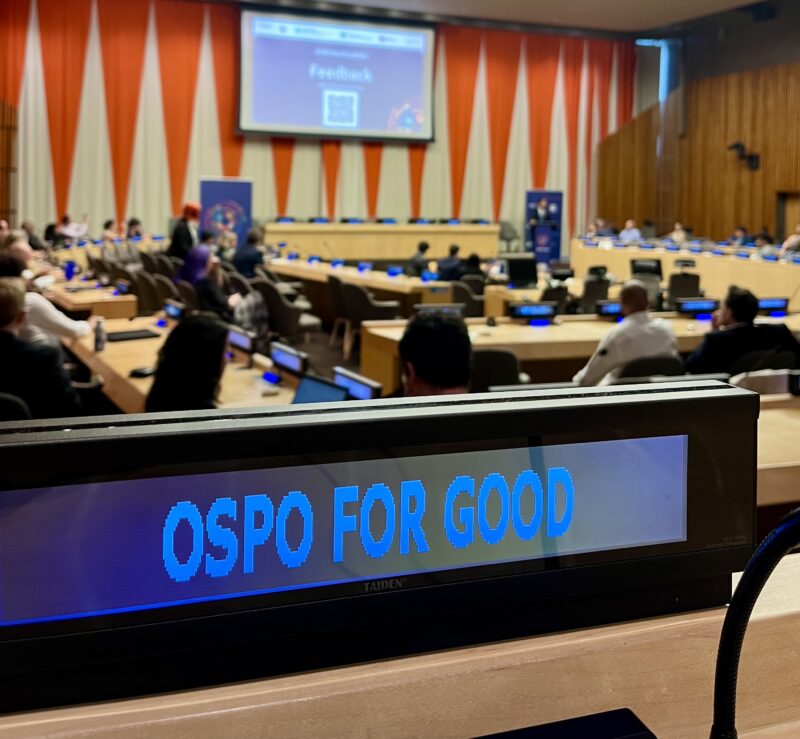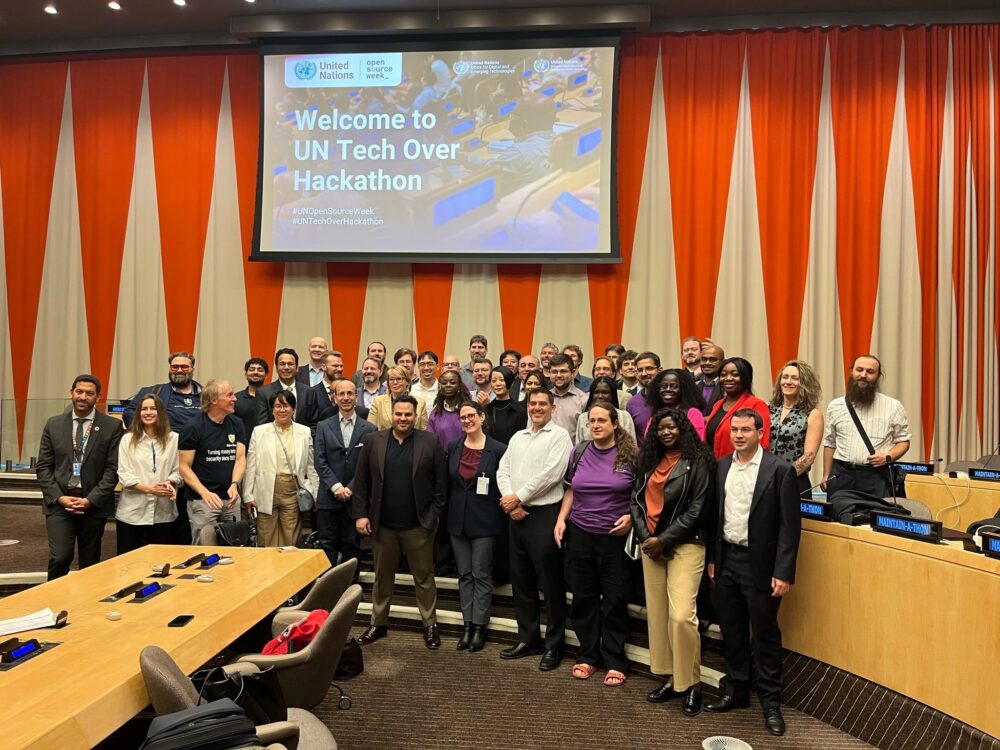
Maintaining the Future at UN Open Source Week
By Theresa Röcher
In News
In June 2025, the Sovereign Tech Agency took part in UN Open Source Week in New York City. We convened a delegation of open source experts to bring hands-on experience into global conversations around digital cooperation and public infrastructure. Across multiple sessions, we highlighted the essential role of open technologies and the responsibility that institutions share for supporting them.
Hosted by the UN Office for Digital and Emerging Technologies and the UN Office of Information and Communications Technology, UN Open Source Week 2025 brought together global leaders at the intersection of open source, digital governance, and public innovation. Over 1,000 participants from private sector, civil society, NGOs, governments and FOSS communities joined for five days to shape the future of open technologies and advance digital cooperation.
In June 2025, the Sovereign Tech Agency returned to the UN Open Source Week with an expanded scope of participation. Building on the momentum of the previous year, we hosted a maintain-a-thon, and contributed across multiple sessions, including a panel at OSPOs for Good day and community-organized side events. We brought a unique perspective, shaped by our role as the leading public institution in Europe dedicated to investing in critical digital infrastructure. Our strategic investments and other programs are recognized not only as a leading example within the open source ecosystem, but also for pioneering how governments engage with these communities. The Sovereign Tech Agency supports the foundational technologies that serve as the infrastructure of the 21st century. It was important to bring this practical experience to the global stage, offering a view into how the German government is developing working instruments to maintain and stabilize essential digital public goods.
Our delegation of experts for UN Open Source Week included 11 open source maintainers who work on critical infrastructure across diverse ecosystems. Their presence was central to our mission: creating space for maintainers to exchange effective practices, surface shared challenges, and translate lived experience into actionable strategies.

Sovereign Tech Agency’s delegation of experts
Making maintenance visible at the maintain-a-thon
We were pleased to co-host the maintain-a-thon in partnership with Michael Winser from Alpha-Omega, bringing together maintainers, contributors, and other people active in the open source ecosystem. Structured as an unconference, participants worked in several groups guided by themes spanning the full lifecycle of an open source project, from inception to long-term maintenance to sunsetting. The sessions were led by the experts from our delegation, who facilitated discussions and helped bring out concrete, actionable insights across diverse thematic areas. To highlight just a few:
The session “Security for the Long-Haul”, led by Seth Larson, Security Developer-in-Residence at the Python Software Foundation, explored how feature-complete projects with limited maintainer capacity can sustain strong security practices. Topics included keeping configurations and tooling up to date, onboarding contributors for long-term maintenance, and building trust with those focusing on security.
There are really smart people working on these problems from all angles, coming to the UN and having these focused discussions is an incredible opportunity you don’t get every day.
— Seth Larson, Security Developer-in-Residence at the Python Software Foundation
Another session “Good First Issues”, hosted by Sarah Hoffmann from OpenStreetMap, focused on strategies for identifying approachable entry points and creating welcoming pathways for new contributors. The discussion highlighted the importance of clear documentation as a starting point, and the value of social platforms that offer a safe space to connect, ask questions, and build confidence. Participants also explored ways to lower barriers to entry and emphasized that meaningful contributions extend beyond code.
Usually as maintainers, we only meet in our own communities. Now meeting so many other maintainers, we were able to address structural problems and exchange what your experiences are, which was really valuable
— Sarah Hoffmann, Maintainer for OpenStreetMap
The maintain-a-thon proved to be profoundly impactful for maintainers who often work in isolation or within specific communities. Despite operating in different domains, many face similar structural challenges. Creating a shared space to exchange experiences, discussed common pain points, and collaboratively define practical responses fostered both insight and solidarity. The unconference approach enabled maintainers to walk away not only with new perspectives, but with concrete, adaptable actions they can apply within their own projects, strengthening the sustainability and resilience of open source infrastructure as a whole.
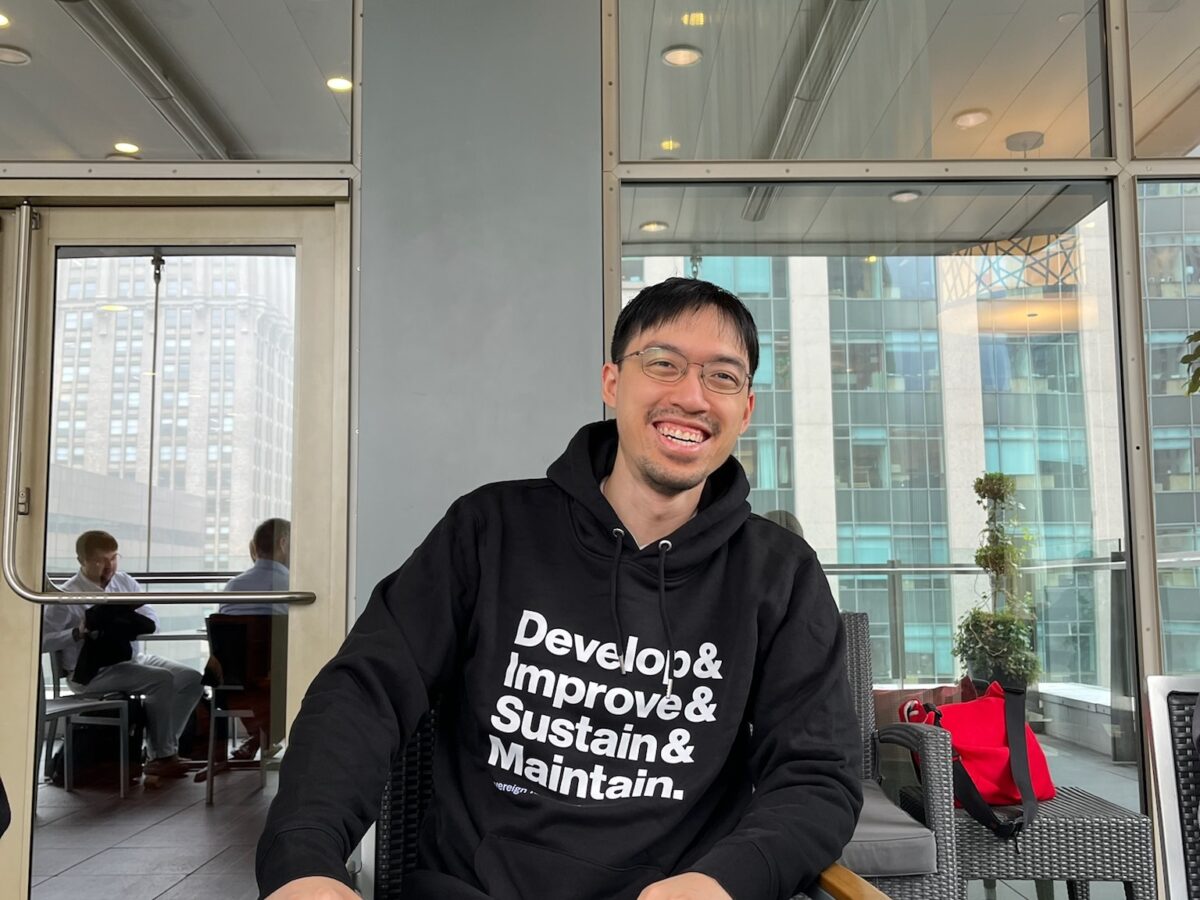
Minh Nguyen wearing a "Develop & Improve & Sustain & Maintain." Hoodie

Maintainers preparing for the maintain-a-thon at UN desks

Mirko Swillus serving on the jury for the “Ahead of the Storm” hackathon
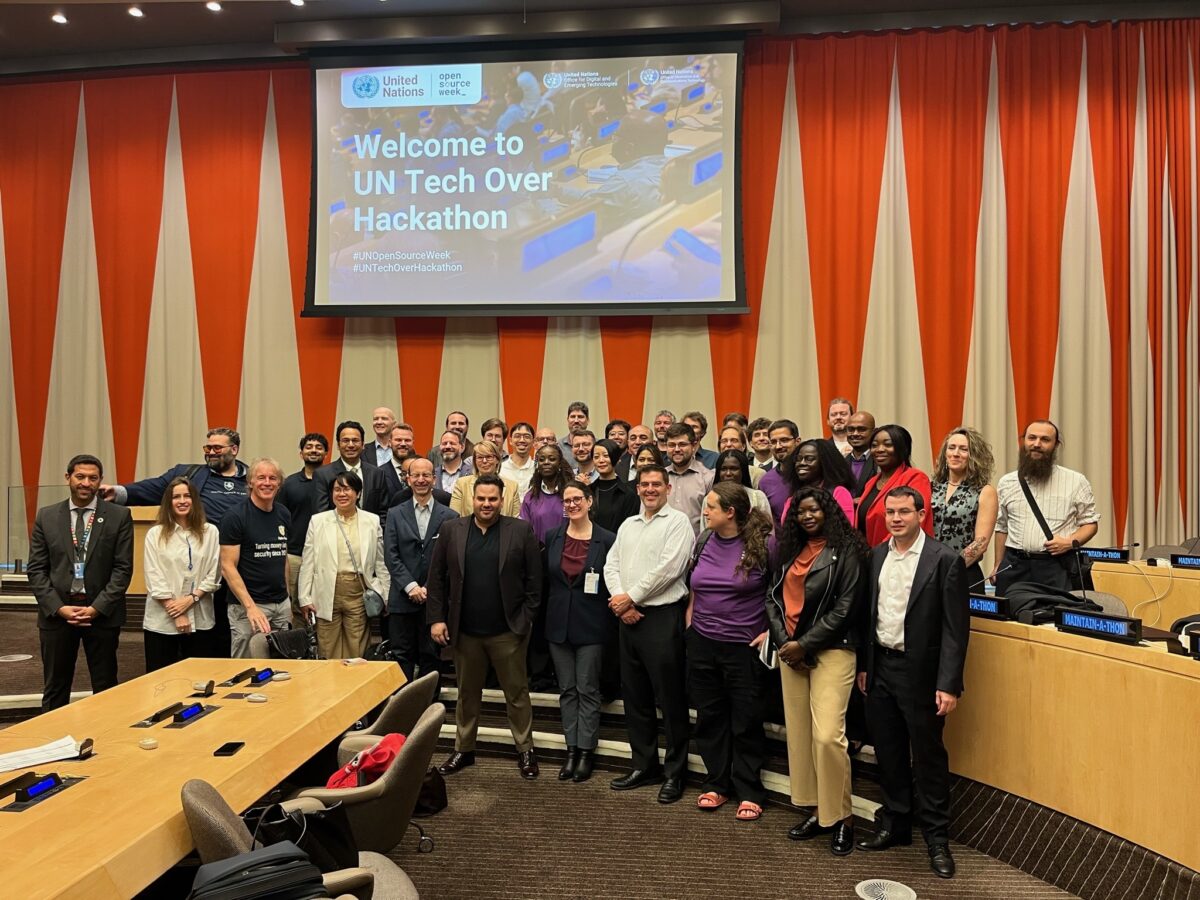
Maintain-a-thon participants

Qianqian Ye leading the session “Free Labor to Fair Labor”
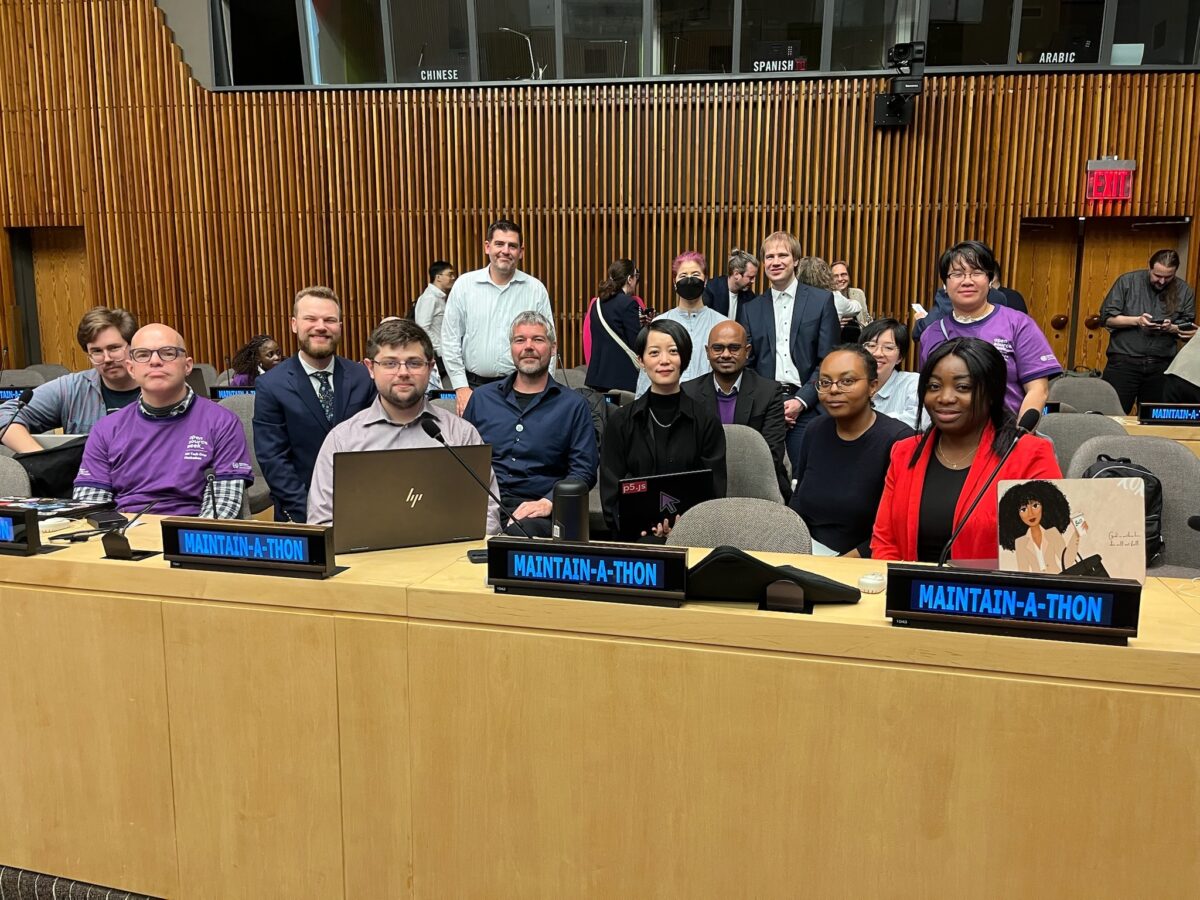
One of the breakout groups during the maintain-a-thon
OSPOs for Good Day: Making Open Source a Strategic Priority
On Day 3 of UN Open Source Week, the focus turned to Open Source Program Offices (OSPOs), strategic units within governments, businesses, and institutions that facilitate engagement with the open source ecosystem. OSPOs play a crucial role in enabling collaboration, promoting open source, and building sustainable structures in companies, public administrations, and other organizations.
Sovereign Tech Agency’s CEO Adriana Groh joined the panel discussion together with Dr. Wolfgang Gehring (Mercedes-Benz Tech Innovation), Miller Abel (Gates Foundation), Gabriele Columbro (Linux Foundation Europe), and Franck Greverie (Capgemini) on “The Role of Open Source in Digital Public Infrastructure”, where she shared insights into our work and the broader vision behind it.
The blueprint we’re trying to create is like new government muscle: how can we take care of open digital infrastructure in a way that is sustainable, secure, and supports our values.
— Adriana Groh, CEO Sovereign Tech Agency
She emphasized that open source is foundational to modern digital infrastructure, and its maintenance and development must be seen as a shared, ongoing responsibility, not as one-off funding efforts, but as long-term, strategic investment.
It’s a global task. It doesn’t stop at borders; it’s not a geographical topic. It connects all of us, it’s one shared ecosystem.
— Adriana Groh, CEO Sovereign Tech Agency
Adriana also highlighted the importance of governments understanding not just the value of open source, but the way it is produced and maintained. As a public organization, the Sovereign Tech Agency operates with the mindset that supporting open source is not optional, but essential. This means moving beyond transactional funding toward sustained investment that strengthens the ecosystem for everyone.
You can watch the full panel discussion at UN Web TV, starting at 01:58:24:

The Trusteeship Council Chamber at UN during the panel
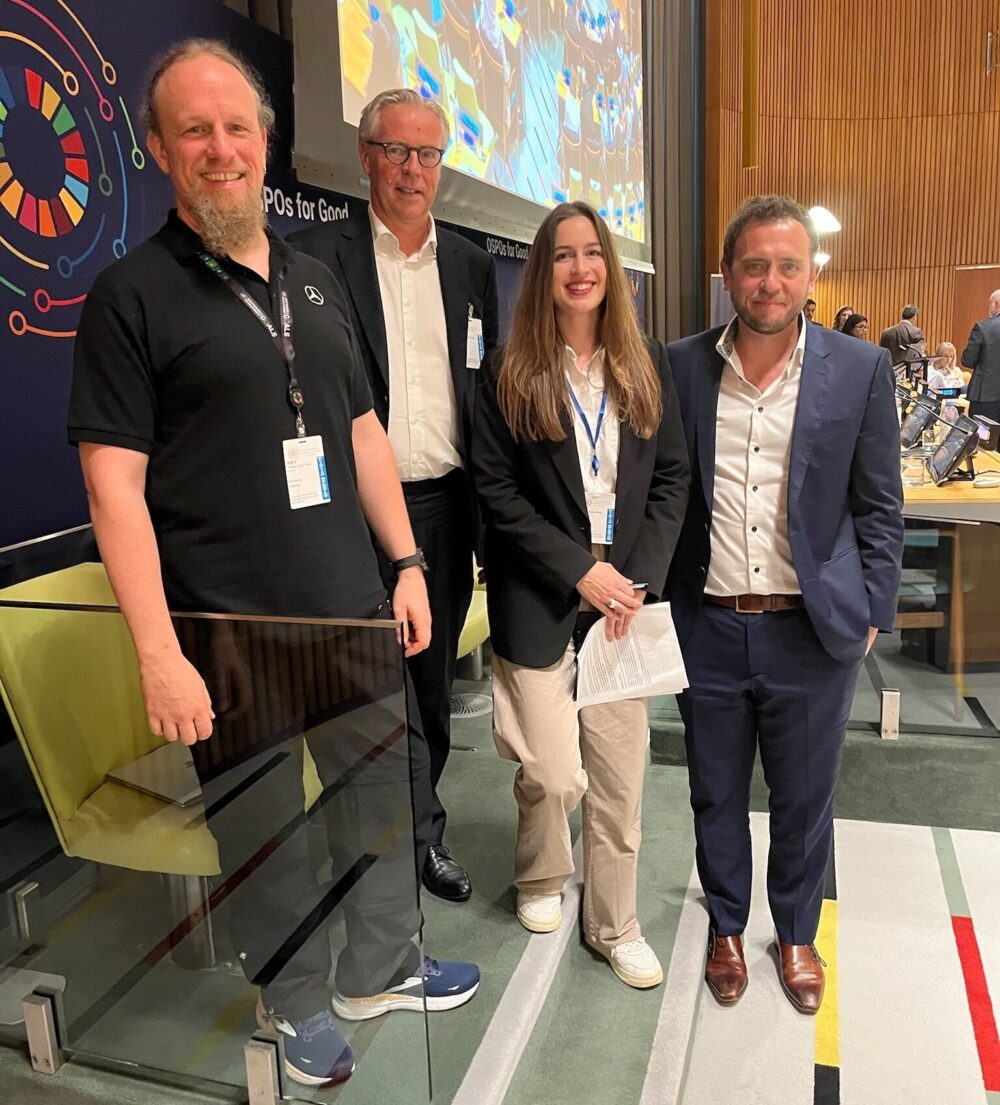
From left to right: Dr. Wolfgang Gehring, Franck Greverie, Adriana Groh and Gabriele Columbro
The Side Events: Smaller Gatherings with Deeper Dialogue
The final day of UN Open Source Week featured a full slate of community-organized side events, supported by RISE Research Institutes of Sweden, OpenForum Europe, and CURIOSS, and hosted at PwC's office in New York.
Sovereign Tech Agency contributed with the session “Invisible Work, Critical Code”, highlighting the often-overlooked labor behind maintaining essential open source infrastructure. Drawing from insights surfaced during the week’s maintain-a-thon, the session focused on the long-term responsibility maintainers carry—from security patching and governance to managing burnout and dependencies. A panel discussion, featuring Bastien Guerry, French Interministerial Digital Directorate (DINUM), Qianqian Ye (Processing Foundation) and Ruth Ikegah (CHAOSS / SDG Working Group), explored how policy, funding, and institutional models must shift to support not just the creation, but the ongoing sustainability of open digital technologies.
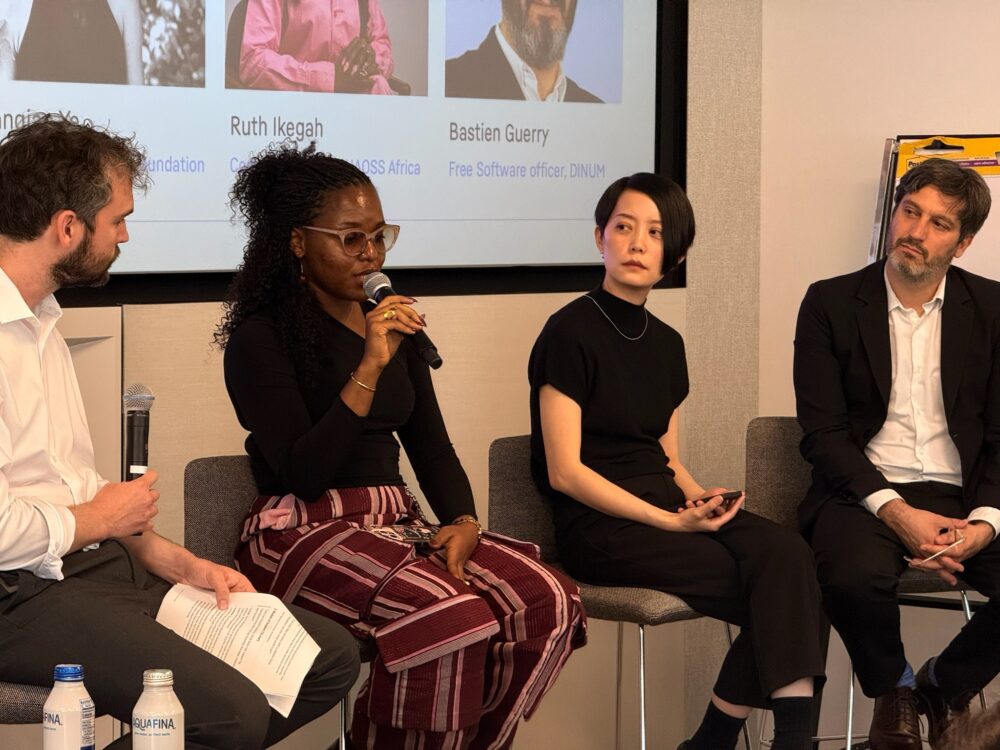
From left to right: Paul Sharratt, Ruth Ikegah, Qianqian Ye and Bastien Guerry
In parallel, Adriana Groh joined the “Capacity Building” track for a session on “National Responsibility for Fundamental Technologies With Open Source.” alongside Maik Außendorf (former member of the German Parliament), Frederik Blachetta, and Dominik Lawetzky (PwC). She shared the origins of the Sovereign Tech Fund and the conversations that led to its establishment, offering a behind-the-scenes look at how Germany is creating mechanisms to take long-term responsibility for foundational digital infrastructure.
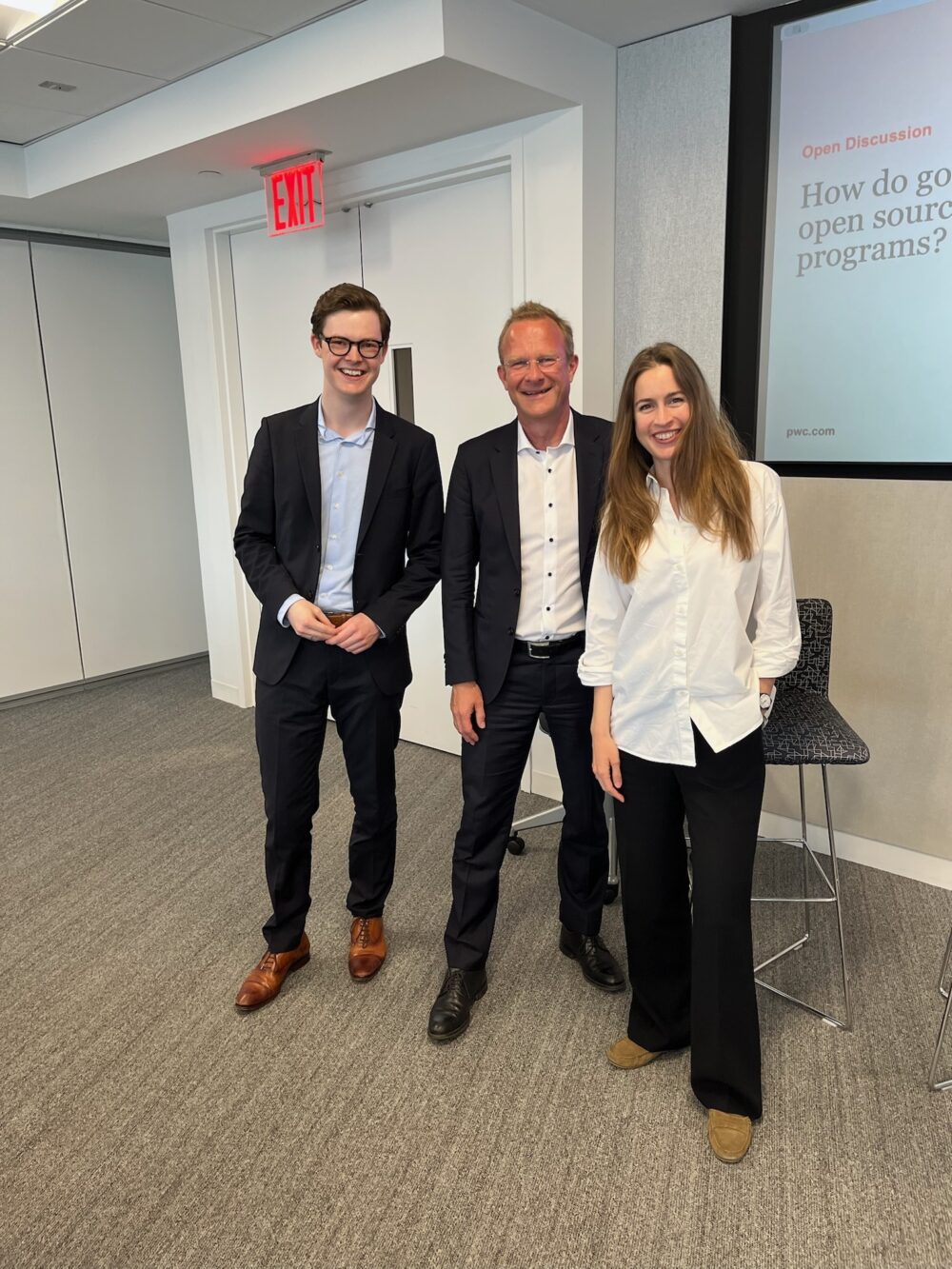
From left to right: Dominik Lawetzky, Maik Außendorf and Adriana Groh
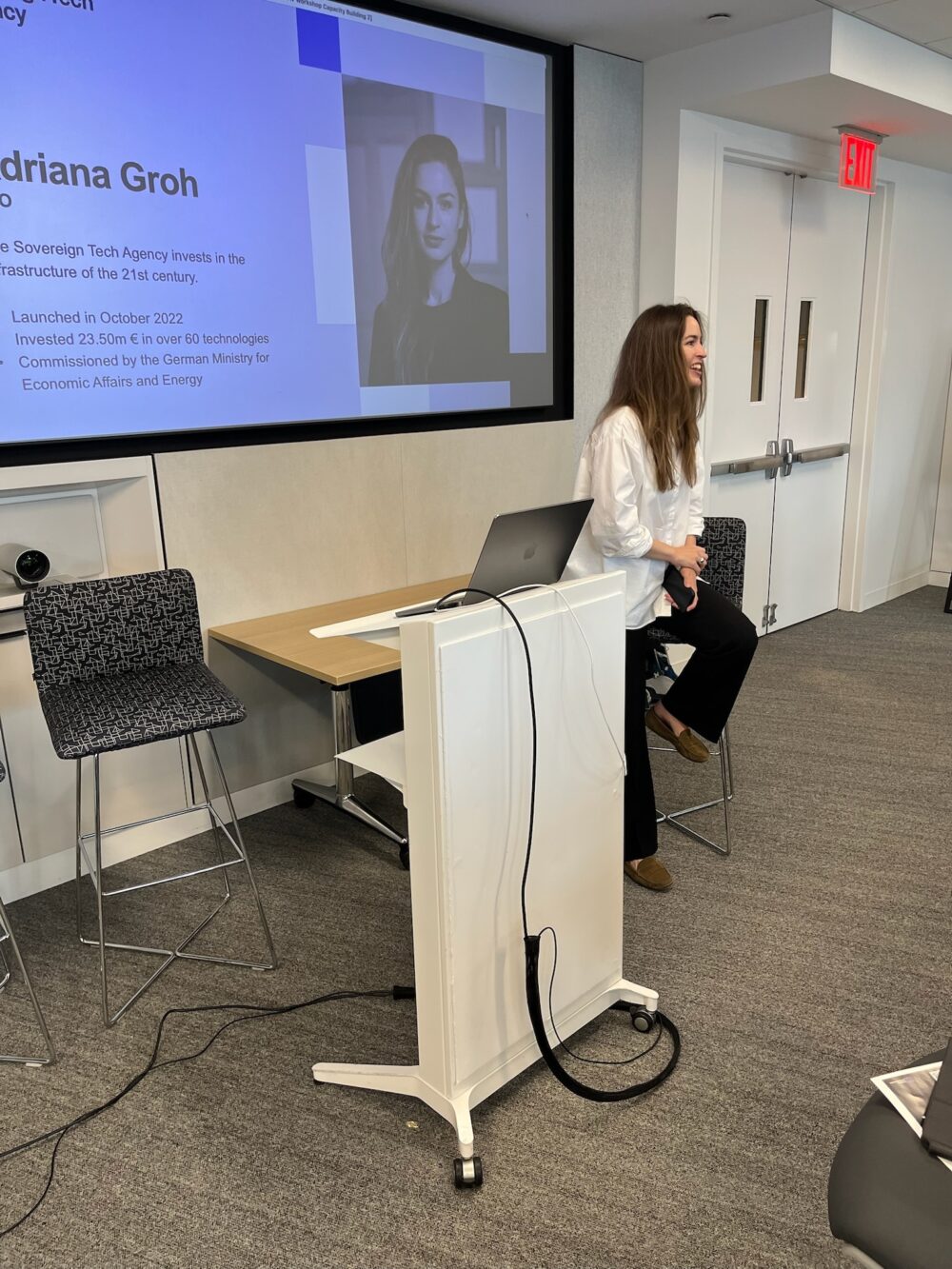
Adriana speaking to the audience
The side events provided smaller, focused gatherings that sparked deeper dialogue. In the engaged discussions, participants brought valuable input and many left with new questions, especially around how to build the case for strategic investements into the open source ecosystem within their own governments, proving that the momentum for participation in our digital infrastructure is growing.
What We’re Taking Home
Maintaining open source, growing communities, and investing in the next generation are essential to building a resilient digital future. Collaboration across borders is the only way to keep that future open, fair, and sovereign.
Special thanks to our expert delegation for their invaluable insights, to Michael Winser and Alpha-Omega for their support, to Omar Moshine and his team at the UN for convening so many key participants, and to PwC Germany and RISE for hosting the side events.

